I spoke with director Eve Victor about a film that explores how one learns to live after trauma
Tara ĐukićNovember 17, 2025
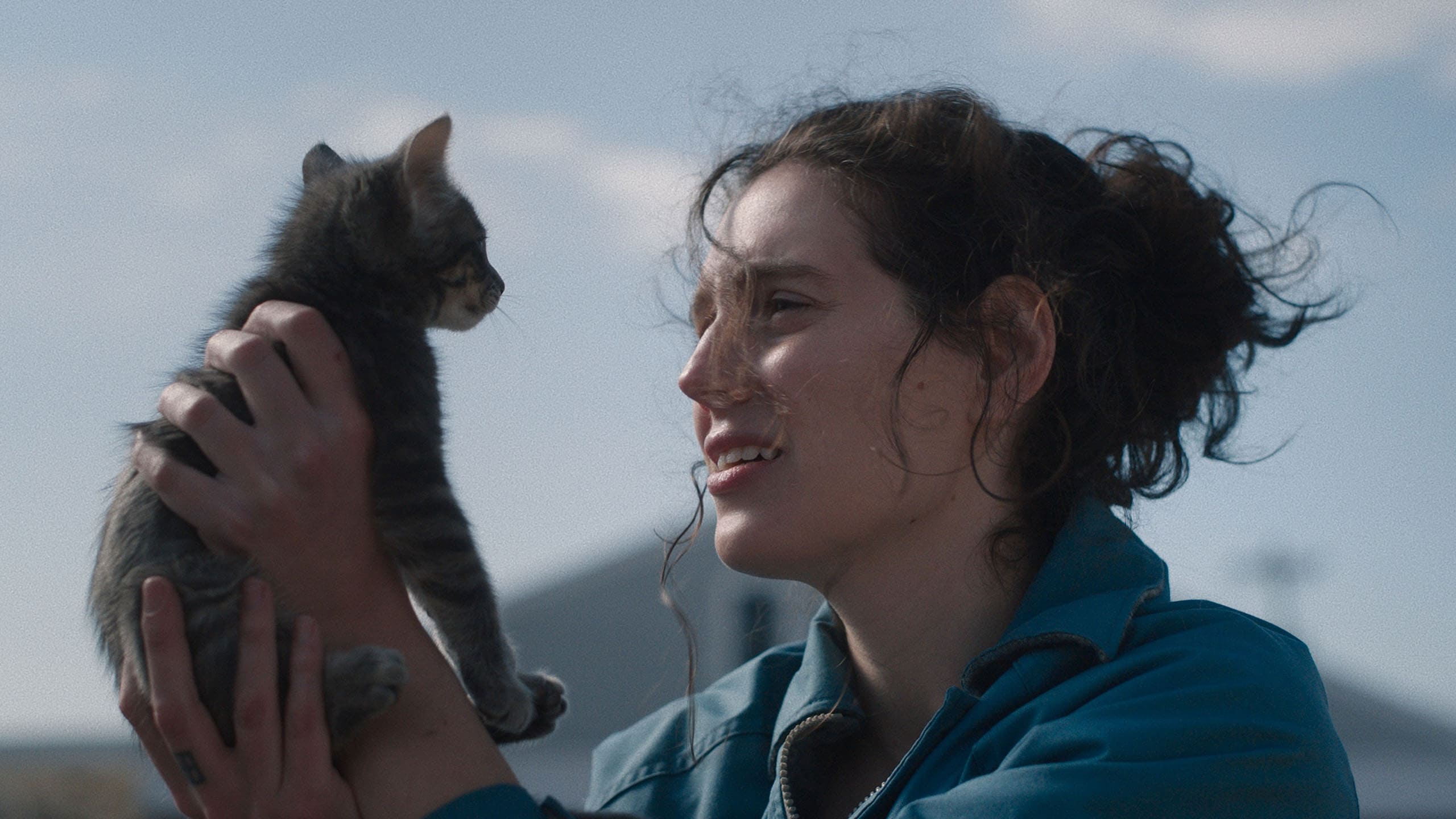

November 17, 2025
Something bad happened to Agnes. This is the sentence that opens the synopsis of Sorry, Baby, and the one that hangs over the entire film without ever being spoken out loud. Trauma. That persistent crack in everyday life, in breath, in silence, in hesitation, the one that often makes us feel stuck while everyone else moves on and forgets much faster than we do. What especially drew me to this impressive triple debut by Eve Victor, who wrote, directed and stars in the film, is the way she reshapes how we usually talk about traumatic experiences. Sorry, Baby is about a quiet, powerful triumph, about finding solid ground again after it has been pulled out from under you. It feels like an open portrait of someone learning to live with something they can never fully get over, yet carrying on, unexpectedly and wonderfully funny along the way.
When I meet Eve after the Zagreb Film Festival, I tell her that I recognized that feeling of being stuck. There is a very tangible loneliness on that path of healing, when your life splits into a before and after. In the film, when Agnes is visited by her best friend Lydie just before a major life event, she starts to understand how stuck she has been, and slowly begins to think about how to move forward. You know, I wanted to make a film about those years I started calling the lost years. The years when everyone around you looks the other way, while you move at a glacial pace, trying to put your life back together. But also, I think that is fine. A part of me understands that people move on without you. Lydie goes to New York, starts her life, good things happen to her. And I think it is completely right that she does that. People hold you for as long as they can, but in the end, it is a lonely journey, the attempt to rebuild your life. And that is fine. People come and go, they can help you get through the day or make it harder. But that is the path, the process that begins when something happens that completely disrupts your routine, your life and your sense of who you are, she tells me with remarkable self awareness and introspection, something that is reflected in her film as well.
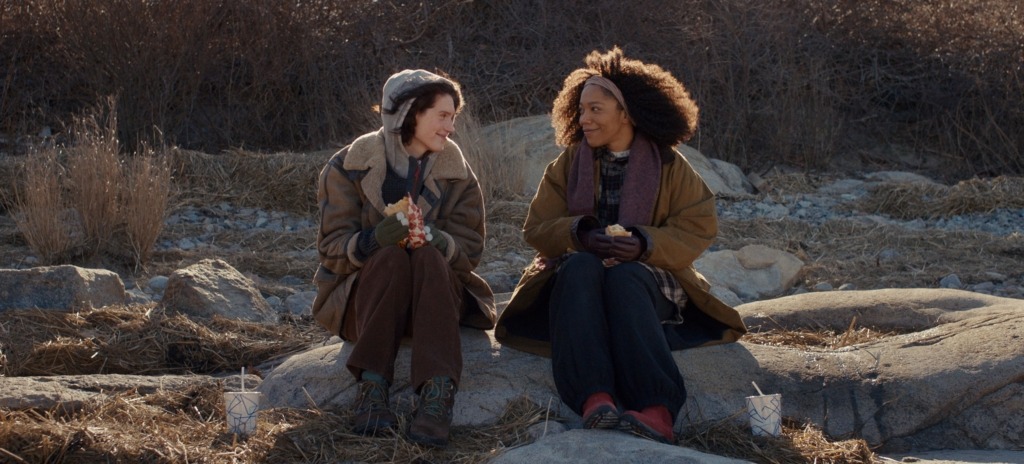
Sorry, Baby
And that healing, glacial in pace as Eva describes it, is never a linear path, which is why the film itself is told in five different temporal chapters. At one moment you feel almost euphoric, convinced you have overcome everything, and the next you are back on the couch, inconsolable. Eva reverses the audience’s expectations of how minutes, hours, days and even years become distorted and scattered in the midst of a personal crisis. How does trauma reshape our sense of time?
I wanted those temporal chapters to feel as subjective as possible. For example, the scene with the jury feels as if it lasts an entire year because she is stuck in it and it is hard for her to endure. The following year feels a bit emptier to her. So everything is told exactly as Agnes experiences it, and her perception of time shifts according to her presence, to what is happening to her and how much she is able to process. Healing truly is not linear, it does not get a little better every day. Some things pull you backward. Some things push you forward. It is a completely strange and frightening world for that reason. But I think the ending of the film is designed as the end of a specific phase of healing, that deeply internal phase when you can think only about what you need. That epilogue marks the moment when Agnes can finally look outside herself and find purpose in supporting a new life. And maybe, even though something terrible happened, something she never would have wished for, maybe it gave her the ability to be fearless when holding someone else. She understands the world a little better now and can be more empathetic toward others.
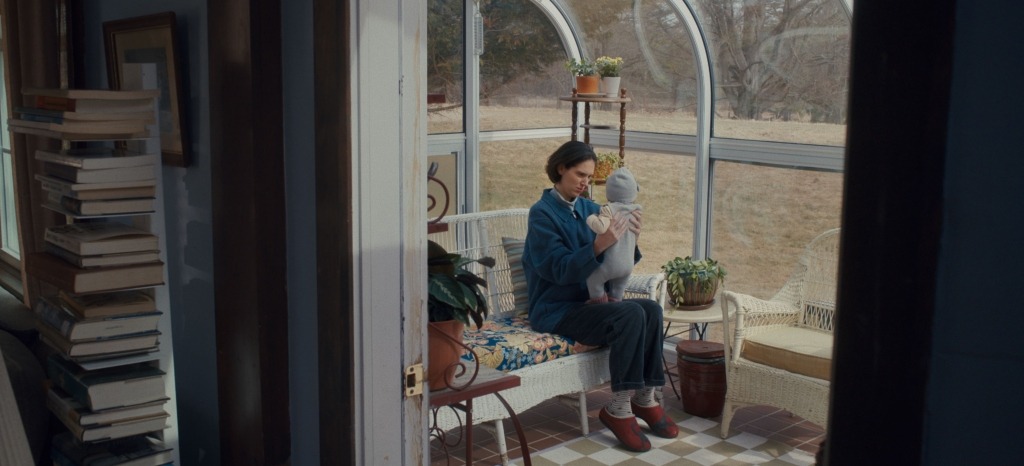
Sorry, Baby
I have to touch on the film’s humor as well, a moment that felt very close to me because I have also dealt with my most traumatic experiences with almost extreme humor. Something close to the grotesque. By avoiding the usual formulas of investigation and analysis of violence, the film carries the foundations of a vivid dramedy, moving through the absurdities, pleasures, confusions and possibilities of a young woman’s life. What does she think, is that humor actually an act of rebellion or a defense mechanism?
I think it is both. I think that in some moments humor is used as a weapon, something that sharply exposes someone and the hypocrisy of their actions. The doctor, for example, is someone the film intentionally presents as a bit of a clown in order to show that the system does not truly protect either Agnes or Lydie. At the same time, comedy is strange. There are moments in the film that make people laugh even though they are not jokes. It is more the joy of friendship, which is contagious. And it is beautiful when I am in a cinema and see the audience respond to that friendship, because that joy is, to me, an act of resistance against the tragedy of the situation. Their ability to hold each other and be joyful for one another is a way of healing. And yes, I have always processed the world through the lens of comedy. That is how I learned to write. My instincts always lead me toward highlighting the world’s oddness through humor. So humor is truly a tool.
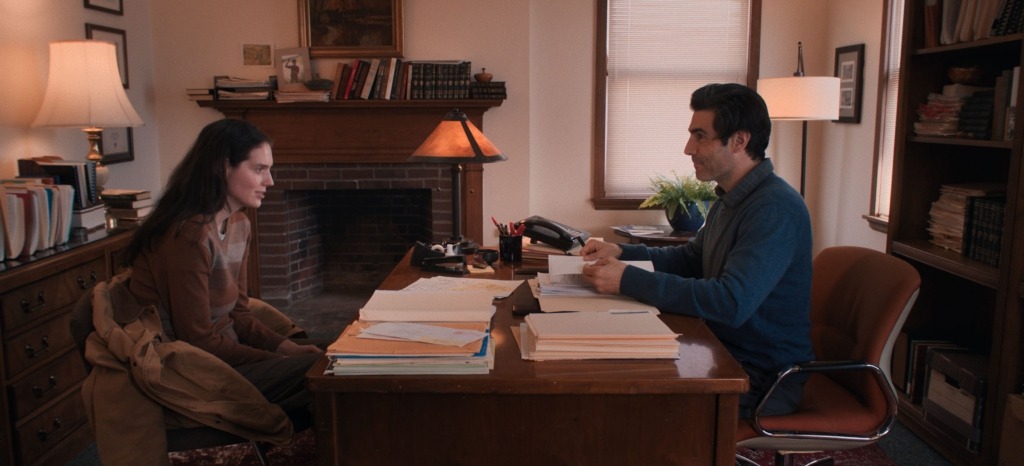
Sorry, Baby
Definitely, I tell her, and I think friends can sometimes be our best therapists. One of the most moving parts of the film is the friendship between Agnes and Lydie. Eva once said that the story is not a tragedy precisely because Agnes has Lydie, who listens to her, and for the same reason Agnes is never portrayed as a victim, nor does the film slip into sentimentality. Does she think that in today’s very complicated and increasingly frightening world, listening can be a revolutionary act? That is a big question. In the film, Lydie saves Agnes’s life in many ways simply by listening to her. She listens and then tells her a very difficult truth about what she went through. I do not know if Agnes would have reached that point without Lydie’s voice. Maybe she would have, but it would have taken much longer. And Lydie’s ability to listen and speak the truth without fear is an act of love. I wanted the film to show examples of people who hold one another, just as much as those who do not. I thought of this as an homage to all those girlfriends who choose their tone carefully, but do not compromise when they need to confront us with the truth, and I am grateful to them for that. And to answer your question, I hope that someone watching the film who finds themselves in a situation where they need to listen to someone in that way will know how to do it, Eva adds.
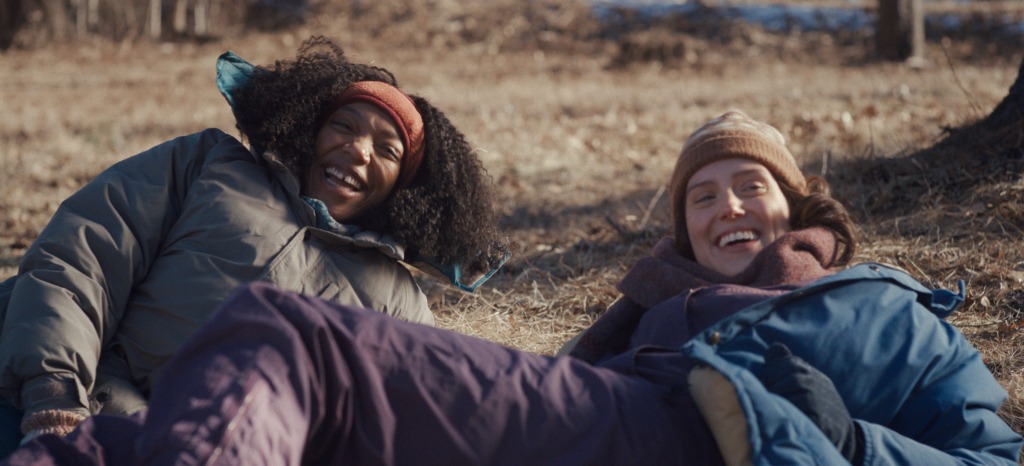
Sorry, Baby
What is the most important lesson she learned while working on this film, from writing to performance? I think the big lesson for me was learning to rely on a community, on collaborators. When they care about the film, the film becomes a shared creation. And that is an enormous relief, to write something so private and then watch people enter it and shape it in their own way, giving it a piece of themselves. It is a great joy. And I am someone who usually does not ask for help. By nature I tend to retreat into myself and look for solutions within myself, but the experience of making this film showed me that we are here for one another. They were there to hold me, and I was there to hold them. And that changes you. It teaches you that you can call someone and say, I need help. And that is not my typical way of functioning. It is not my psychological pattern. So this was a good experience, a leap into something unknown and deep, but with people beside me. And maybe that is the message to end on, that in a world where the echo of alienation is loud, we should not forget that everything can be survived with someone close by your side.